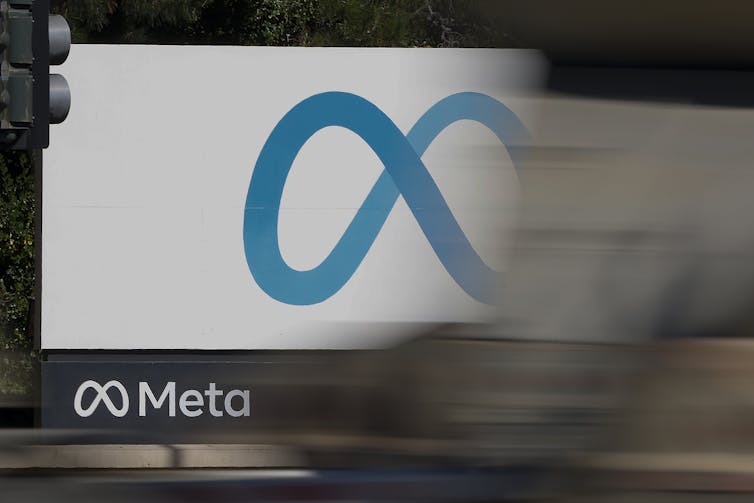Labor’s news bargaining incentive looks a lot like a digital services tax. Will Trump notice?
- Written by Fei Gao, Lecturer in Taxation, Discipline of Accounting, Governance & Regulation, The University of Sydney, University of Sydney

Tech giants could soon have a new multimillion-dollar motivator to negotiate deals with Australian media companies to pay for news, after details of Labor’s proposed news bargaining incentive were finally revealed this week.
On Thursday, Treasury released a new consultation paper[1] on the mechanism, which was first announced[2] late last year.
It is designed to pressure large digital platforms, including Meta (owner of Facebook and Instagram), Google and ByteDance (owner of TikTok) into paying Australian publishers for using their content.
Under the proposed model[3], any digital platform earning more than A$250 million in annual revenue from Australia from search or social media services would face a charge equivalent to 2.25% of this revenue.
But platforms could reduce this charge by negotiating or renewing commercial deals with Australian news outlets. Every dollar paid to publishers would reduce the amount payable by $1.50. That means it would always be cheaper to fund journalism directly than pay the charge.
However, its design looks a lot like a “digital services tax” on big US tech companies. US President Donald Trump has put such measures in his sights[4], making it a bold move for Australia.
Why big tech needed a nudge
The proposed new model sits on top of the existing news media bargaining code[5] introduced by the Morrison government in 2021.
This code worked at first[6]. Despite threats to remove search[7] from Australia, Google eventually reached agreements with many publishers.
Meta eventually signed deals, too, albeit after briefly removing news[8] from Facebook in Australia during a standoff. These payments became a crucial funding source for Australian media.
However, the code had a key structural weakness: it relied on platforms choosing to participate. Platforms can opt out, simply by not renewing commercial contracts with the news outlets and removing local news content.
In early 2024, Meta announced it would not renew[9] its Australian news agreements.
The company argued news provided little commercial value. Without this revenue, many smaller Australian media would require large alternative sources of funding.
The government needed a mechanism that did not depend on voluntary cooperation. So, the news bargaining incentive[10] was born, creating a financial consequence for refusing to pay.

Taxing digital profits
From a tax perspective, the proposed incentive resembles what’s called a digital services tax[12].
Digital services taxes are already used in the United Kingdom[13], France[14] and several other jurisdictions to collect tax from large digital platforms.
These taxes generally apply only to very large multinational platforms, focusing on digital advertising and user-based platform services. They use revenue, rather than profit, as the tax base. Their rates typically fall between 3% and 5%.
Australia has considered a digital services tax before. In 2018, Treasury released a discussion paper[15] exploring an interim digital turnover tax aimed at the biggest global platforms.
But successive governments paused the idea and instead backed international efforts[16] to reallocate a portion of multinational tech companies’ profits to the countries where their users are located.
Called “Amount A[17]”, this measure formed an important part of “pillar one” of an OECD-led global tax deal[18], which was supposed to be implemented globally in 2023.
A digital services tax in all but name
The proposed news bargaining incentive closely mirrors a digital services tax, applying a percentage charge to the Australian revenue of large digital platforms.
Most of that revenue comes from digital advertising, which is the central target of these taxes globally. The effective rate of 2.25% is also broadly in line with the typical digital services tax range.
The key political difference is where the money goes. A digital services tax sends revenue only to the government, while the Australian government’s proposal allows platforms to pay news publishers directly.
This gives Canberra a line of defence that this policy is about media competition, rather than taxation.
A bold move for Australia
The geopolitical context is now particularly important. In January, the Trump administration formally withdrew the United States’ support[19] for the OECD’s global tax deal.
Trump has consistently described digital services taxes as “discriminatory”[20] measures targeting American companies. He has also previously authorised trade investigations and tariff threats against countries that pursued them.
Australia is already on the radar[21]. The US Trade Representative has placed elements of Australia’s digital regulation under review for potential unfair trade practices.
Even though Australia has not introduced a digital services tax, any measures that resemble one – or shift revenue away from US technology firms – are politically sensitive.
This means the news bargaining incentive must navigate a delicate political space. On paper, it is a competition and media funding mechanism. In substance, it functions very much like a tax to redirect tax revenue back to where users are located.
If Washington views the measure as a digital services tax in disguise, Australia could face diplomatic friction at a time when US trade policy has become significantly more unpredictable.
References
- ^ consultation paper (storage.googleapis.com)
- ^ first announced (ministers.treasury.gov.au)
- ^ proposed model (storage.googleapis.com)
- ^ in his sights (www.washingtonpost.com)
- ^ news media bargaining code (www.accc.gov.au)
- ^ worked at first (theconversation.com)
- ^ threats to remove search (www.abc.net.au)
- ^ briefly removing news (www.bbc.com)
- ^ would not renew (theconversation.com)
- ^ news bargaining incentive (ministers.treasury.gov.au)
- ^ John G. Mabanglo/EPA (photos.aap.com.au)
- ^ digital services tax (theconversation.com)
- ^ United Kingdom (www.gov.uk)
- ^ France (digitalpolicyalert.org)
- ^ discussion paper (treasury.gov.au)
- ^ international efforts (www.oecd.org)
- ^ Amount A (www.oecd.org)
- ^ OECD-led global tax deal (www.oecd.org)
- ^ formally withdrew the United States’ support (www.whitehouse.gov)
- ^ “discriminatory” (www.washingtonexaminer.com)
- ^ already on the radar (www.abc.net.au)

















